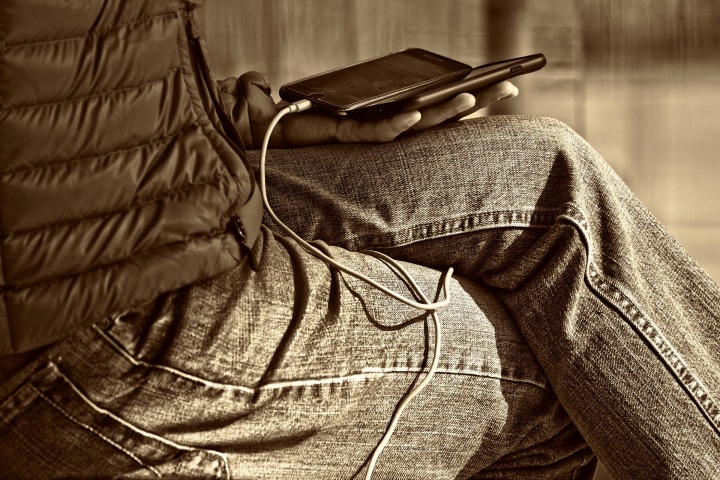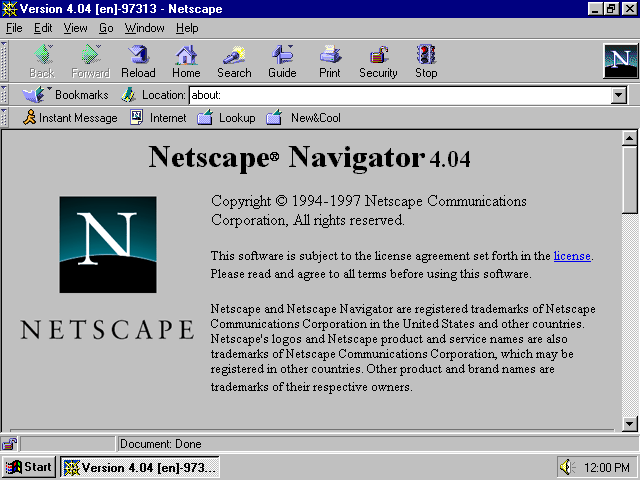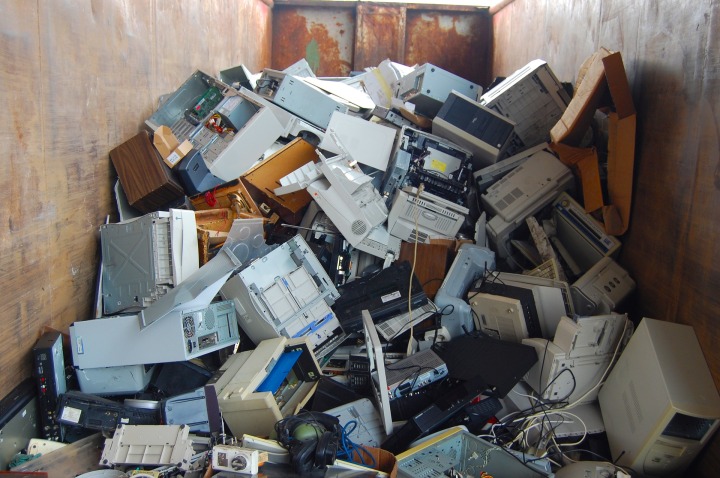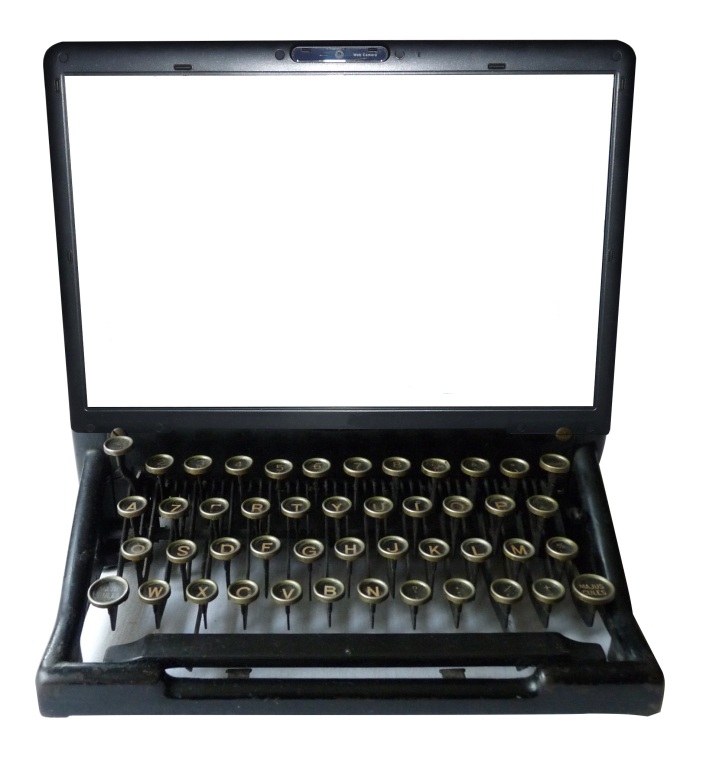Does it ever seem to you like the Internet isn’t as great as it used to be?
I’ve felt this way for most of the 2010s, but I spent the early years of the decade surrounded by people who were particularly eager to brand me as a Luddite when I said so. In 2011, I completed a master’s degree at the University of Michigan School of Information (UMSI); as you may recall, this was also the year of the Arab Spring, that high point of technoutopianism. Back then, everyone could see that the Internet was going to destroy what was left of history after Francis Fukuyama’s capitalist liberal democrats had finished with it. Freedom was about to triumph! Many of my classmates at the iSchool (that’s what schools of information call themselves) were going to go work for the likes of Facebook and Google as midwives for that technoutopia.

iSchool, as it happens, has something in common with divinity school. My college roommate had recently earned a Master of Divinity from the University of Chicago; she once told me that a large number of her classmates were atheists, driven precisely by their lack of faith to study religion academically. While at UMSI, I sometimes felt like one of those atheist students, studying a religion whose teachings I did not buy into.
This is despite the fact that I was raised in this church. I was a kid who, in 1997 at age 15, got to be on CNN’s Computer Connection. This was a show about the new and dazzling wonders of the Internet, with live scrolls through Netscape Navigator screenshots, narrated by cable news anchors who saw value in telling TV audiences what they could find if they got on line. The CNN team came to my house to interview me because one of my online series stories was about a set of septuplets, and it just so happened that a real set of septuplets was about to be born, and back then, a kid with a web page was newsworthy enough to serve as good filler until the babies actually arrived.
So I was a fan of the Internet way back in the day. When I first used the World Wide Web a couple years earlier, it had been immediately evident to me that I’d stumbled upon a tool that I could use to advance my personal mission to become a writer. In 1989, in a summer camp program as I waited to start second grade, I remember stapling together the waste computer paper that Dad donated to my school, making books that I’d then fill with stories; I remember saying as I did so that some day I hoped people around the world to be able to read what I wrote. I did not expect, being seven years old, that I would accomplish this before another decade had passed—and not because I was at all precocious, but because suddenly, bam!, this thing called the Internet showed up and made it possible for a kid to publish her work without needing the gatekeepers to make it possible. In the summer vacation just before I started high school, in 1996, I asked my dad, a computer programmer, how people put stuff on the Internet. He showed me how to FTP into the space provided by our ISP, and within a few days, my stories were on the Net, at http://www.id.net/~kmannist/septs.htm. I remember Dad telling me over the phone while he was at work that the URL was “tilda kmannist”; I spent the rest of his workday confused because I had no idea what a tilda was. When he got home he showed me the squiggle.

★
In his excellent book You Are Not a Gadget, Silicon Valley visionary Jaron Lanier observed that the best websites tend to be the personal projects of a single passionate person. I liked to think that my personal online project was an example of that, so it felt like a personal compliment. But I agree not only because I was flattered; much of the worthwhile content I see on the Internet even now is still the work of a passionate individual, or at least a small group of people working together on some shared interest, not in pursuit of profit. (And though I mention that primarily to reflect on the source of human creativity and not as a critique of capitalism, please feel free to extrapolate.)
Regardless of whether you want to run off to the economic left with me, surely you will agree that the creations made by individuals with a drive to create and share are bound to be different from those whose goal is to get bought out by Facebook. This is just one reason why I think the 1990s were the Golden Age of the Internet. If you were even alive and online at the time, think back to the days before monetization, before clickbait, before constant connection, before algorithms and filter bubbles, when it really was largely a sphere of personal projects connecting people over shared interests.
Apart from myself, who looks at the new Internet the way Pa Ingalls looked at the house in the Big Woods when too many people moved in, perhaps only a few would go back to hand-crafted HTML, Lpage guestbooks, and the inability to reach the Mannisto residence by phone because their teenage daughter was always on the Internet. (On that last note, I’ll readily grant that some things have improved.) One might also note that there are still people out there striving to keep up the kind of web sites that Lanier and I so admire, even if they have become relegated to the less visited corners of the World Wide Web, as our attention is captured and sold by brokers—a fact that is starting to upset more and more of us.

So I doubt that I’m the only one who thinks that our present age, circa 2018, is not a Golden Age, either. The Web, if anyone even calls it that anymore, no longer feels world wide, or at most, it only appears so from the top down, thanks to the international trolls who are regularly in the news. Instead of that sparsely populated digital frontier, we have a few large content corporations—Facebook epitomizes this group—who may be world wide, but they offer us a view that is more parochial than ever. We dwell in the filter bubbles they’ve built for us, and we see this (not without some justification) as a service because the web is so crowded that we don’t have enough attention for everyone we encounter, so we must depend on others to curate it for us. Moreover, today, in place of a small group of people who are dedicated enough to some passion to put in the effort of constructing a small camp for it on the vast expanse of the Net, everyone is more or less expected to have some online presence, and what’s more, to be cranking out content repeatedly so as not to be swallowed up and lost amidst all the other voices. Businesses. Brands. Campaigns. Lonely college kids with no social status. Grandma. These people may not have anything in particular to say, but they tweet and snap and blog and vlog so as to assert their continued relevance. If they deactivate their account, they might think, they deactivate their relevance. But to be relevant means that Mark Zuckerberg has a file on you, and he is not your friend.
No, this is not a Golden Age.
★
You readers may question the point of indulging in this nostalgia. Even if I were to convince you that the 1990s really were a golden age, I have no time machine to transport us all back.

But the questioning has been fruitful for me. What was the Internet doing for me back then that I perceived as empowering? What is it doing for me now that I perceive as limiting?
And here is why, rather than trying to convince you of how wonderful the 1990s were for creative kids, I would rather ask you: when was the Internet the most engaging, the most enriching, the most empowering, the most enjoyable, the least burdensome for you, and why? What worked for you then? What do you miss? Even if some things may not have been quite perfect, why was that, on balance, a healthier time? What trade-offs did you make? Were they worth it? Which ones weren’t? Or perhaps you actually think that 2018 is the best year yet in Internet history!
If you can answer those questions, I’d wager that you’re on the way to returning to using the Internet as a tool to improve, not degrade, your quality of life. There will still be network effects and the attendant peer pressure; there will still be Silicon Valley magnates trying to manipulate your dopamine and direct your behavior in ways that you actually don’t like when you stop to think about it. Knowing what a Golden Age would be for you, whether or not it’s ever come to pass, will give you your own personal compass, to help you navigate your own digital life.

In some upcoming posts, I’ll dig a bit deeper into what worked for me back then, and what’s particularly tough for me and others I see right now. In the meantime, I’d love to know what you think: when would you describe as the Golden Age of the Internet, and why?
![]()
This page still best viewed with a
Netscape-era sense of agency.

I was one of many who got online in the late 1990s and early 2000s, but my experience was a little bit different. The vast expanse of the internet was exciting, but also daunting. I was proud of my poorly-made Geocities page with the sky-blue background, but unsure of what to put on it.
If you were a creative pioneer, I’m sure this was a wonderful time, but in terms of mass-market adoption and use of the internet, I’m going to suggest a different (and probably controversial) timeframe: 2004 to 2011. I chose those years because Youtube launched in 2004 and the New York Times instituted its paywall in 2011. During the years in between, it really seemed like the techno-utopia had arrived. In addition to Youtube, Facebook and Twitter launched during this time period, as did streaming services like Hulu. Not all of the tech startups got gobbled up by Google or Facebook immediately, and the creative pioneers still had their corners of the internet. It seemed like we were free to share and free to read and free to watch, with no downsides.
It wasn’t until after this period that all of the issues with the development model of the internet became apparent: all that free stuff meant that companies took your personal data to run ads, content platforms became too large and unaccountable, and Amazon solidified its horizontal monopoly and began to threaten real local economies.
And looking back on this history, I have to say that the “Golden Age” of the late 1990s that you cited actually sowed the seeds for what the internet has become. If we had viewed the internet less as the Wild West and more as an extension of the real world and the real economy, could we have avoided some of the issues that came later? I’m honestly not sure.
LikeLiked by 2 people
Yeah, probably early 2000’s before facebook and google adsense and ruined it for good. And before newspapers became filled with printed-out Tweets – (a) making it impossible to escape into the real world and (b) reducing most expressions of opinion by public figures to roughly two broken sentences.
LikeLiked by 2 people
Agreed! Yeah, Twitter has been bad in so many ways. I’d rather read slower news that digs deeper and offers more nuance, but Twitter creates tremendous pressure to do precisely the opposite.
LikeLiked by 1 person
Maqroll, thanks for this excellent, thought-provoking comment. (And sorry for my extremely delayed reply!) You get right at the point of why, rather than issuing a decree as to when the Golden Age was, I think it’s more useful–if the goal is to help people live a healthy digital life–to ask each person to reflect for him- or herself on when the Internet offered something as close to that as it ever has. YouTube, Facebook, and Hulu haven’t really been great for me, but they have for others for sure.
In terms of sowing seeds, though, isn’t there a strong argument that the free content of 2004-11 planted the real bad ones? Perhaps the metaphor is that this period applied Monsanto-strength proprietary fertilizer to seeds planted earlier? Back when I was at iSchool (2009-11, so the very end of the period you highlight), I took a class entitled Personal Privacy. As you might imagine, it was quite fascinating! And I wrote a paper for that class arguing that we should have more LiveJournal-style subscription based models for social media platforms and other things that are all about personal data, because otherwise, as we all know now, you are the product, not the consumer. This wasn’t great insight on my part, of course; it was obvious to anyone who stopped to pay attention to the question at the time. And yet, some of classmates responded to my argument by saying, “Yeah, but people are willing to give up their data for these services.” It turns out we were both right; people were willing to do so…up to a point, when suddenly the magnitude of the problem sank in, that we really had become products. Many of my classmates, of course, went on to build the platforms that made us into those products!
Though on issues other than the privacy one, it might be that some seeds were planted earlier. I don’t tend to see those issues as problematic, but I love the topic so am open to arguments that they actually were. It might not be too late to correct course, at least on some issues.
LikeLiked by 2 people
Clarification: I do see Amazon, which is not merely a privacy issue, as problematic. I want Borders back.
LikeLiked by 1 person
I love your cover photo, Jessie. It does bring me a sense of nostalgia of the 90s and early 2000s internet age. It looks like the room of someone in their late teens or 20s, as they explore this magical new realm of the internet.
Since this time, we have gone from pioneering, to early acceptance, to late acceptance, and therein is why all the magic seems to have been gone. Where once, pioneers and early users saw the internet as a community and an opportunity, now, the internet is just another place where we are bedeviled by all the problems of humanity, except magnified.
One thing, however, has not changed, and that is people. There are still the hopeful, happy, intelligent, quirky, and creative people, such as those who might be using the room in your cover photo.
On the other hand, there are people who are ruled by anger and fear. Technology is then but a tool… They can use technology to overcome their negativity… or use technology to enable it.
LikeLiked by 2 people
Thanks, Fred! As soon as I saw that photo on Pixabay I knew I’d found the one I wanted; I’m glad it conveyed the same idea to you!
Your comment about the Internet just being people is spot on. Though actually, one complicating factor is that the medium strips away certain positive human traits, and amplifies certain negative ones. The positive is our ability to convey lots of important information through tone and body language, and the negative is our innate tendency to perceive threat first, and only later realize that we’ve overreacted and everything’s safe: witness any text-only debate, especially between strangers who have no history of interaction to offer context, and see how often people err on the side of reading animosity into a statement! It’s so much easier to disagree in person. (This is contrary to popular belief, I think, because we’d rather be able to disagree with someone who is safely behind a screen, but this also prevents us from resolving the controversy or facing the human element of the issue.)
LikeLiked by 1 person
It is quite a study on how written words come across… humor and sarcasm are very difficult, brevity can be seen as annoyance, all caps can be seen as shouting, etc.
LikeLiked by 2 people
I guess I should add… I was disappointed that that Netscape icon did not link. 😀
LikeLiked by 1 person
Haha! I’m disappointed about that, too. 🙂
LikeLike
End of 80’s: computers were distant magic (commodore demonstrated without touching it at public school). Toy-like magic – Apple IIc, IIe, at a better school where we could all play. Where in the world is Carmen Sandiego! Learned basic. Programmed an animation of smoke puffing up out of a blocky “house” that was defined pixel by pixel. Accessible magic in the 90s – DOS – ugh, but you could do more, modem, dialup, BBS’s, pirated software, multi-person turn based text games, multi person graphical games. Make your own magic on it. First saw internet on a HP-unix with CDE, the ugly ass visual toolkit that Netscape inherited). First at home with AOL — chatrooms, mass idiocy. Come to think of it, that was a precursor of what’s to come. IRC. The whole world was still magical. Utilitarian magic at the end of the 90’s. University. Programming the way the math nerds figured it all out in the 50’s. Mind blown beyond recovery. Linux/BSD. Holy s***t. Mind blown again. Napster. Mind blown. Actually Napster was uniquely cool unlike every other thing that followed it, since you could go thru each individual persons collections and the choices they made. Lets see… After that it got utilitarian. You can write your own internet app, webserver, peer to peer service… boring. You can write a tool to make your college life easier. Fun! You could do anything if you were focused enough…. and if you like sitting in dark rooms for hours.
—
The internet is truly revolutionary for democratizing access to knowledge. Reference information, wikipedia, and lots of site-specific knowledge base sites, All the music and movies ever. News from around the world, combined with auto translation. Written law. Very late to this game, scientific publications. Youtube, where you can learn any skill you want, from repairing your specific make and model of car, to better exercise technique or physical therapy.
That all leaves out the human dimension tho. I guess my own experience didn’t at all focus on the internet as a communications tool, but rather as a tool to share valuable information.
–
More and more tho, the act of finding quality answers to queries is being actively subverted. By actively, I mean there is an entire SEO section of books in your bookstore, if you still have one, on how to do this, and it works.
The innocence sure feels like its gone. Similar to living in a place where you never had to lock your doors and now you do. I wonder how kids growing up now feel about it.
LikeLiked by 2 people
note: CDE – my first time seeing the internet, or the web at least. https://en.wikipedia.org/wiki/Common_Desktop_Environment
LikeLiked by 2 people
CDE! I never used that, but I did use KDE for a while (back to Gnome now) on Ubuntu Linux. And yeah, Napster was huge; that was right when I started college in 2000. I remember getting J-Pop that I’d listened to in Japanese lab and liked — getting foreign music was not something I’d known how to do before that. And I got Where in the World is Carmen Sandiego? for Christmas in 1991! We had an Amiga 2000 back then, from the late 80s until…well, actually, it’s set up in my bedroom at my parents’ house right now because it’s still awesome. But we got another PC with Windows 3.1 in 1995. Another thing I remember: WordPerfect 5.0. I use FocusWriter now, a full screen word processor, for a lot of my longer writing, and I have it set up to have a blue screen and grey courier new font, so it looks almost like I’m using WP. I still sometimes try to center things by hitting shift+F6….
But yes, along with shift+F6 to center, the innocence is gone. We have access to a lot of information, but the good stuff (at least much of it, to me) is still the expensive stuff that I still can’t get access to (I’m thinking of academic journals especially), whereas we’re paying people to crank out junk to fill space, capture attention, and generate ad revenue. And critical thinking and information literacy are not keeping pace with the flood of content….
As for kids growing up now, well, this is already a little dated because I read it in 2011, but there’s a book by Sherry Turkle called Alone Together that talks about this. High school kids who never remember a time when kids didn’t have cell phones have nostalgia, she reports, for a time they never knew, when they were’t expected to respond to their friends’ texts (or worse, their bullies’ texts) in the middle of the night. I think I’d have become severely neurotic if I had to deal with that in high school.
LikeLiked by 1 person
I first got online in 1996. Within months, I’d connected with fans of a disbanded music group, one of them taught me HTML and I had my first website. I made websites all the time – any weird hobby I had, I made a site for it, from collecting multiple birth trivia, to writing, to specific niche sites for fans of TV shows and music groups. I designed my own graphics. Everything was sort of homemade and fun. And outside of big business, everyone’s sites were like this.
Now “amateur” sites are expected to look professional and homemade is code for low quality.
I have wished so much to get back that feeling of 1996 – 2000 online. I have been trying to pinpoint forever what made it so good, but it’s an elusive feeling that I can’t really put into words entirely. I think the internet felt like a small town and not a huge cosmopolitan city.
I liked the anonymity. You were your screen name to everyone, and that gave a lot of freedom to be who you wanted to be online. The irony was that over time you’d forge these great relationships with people and eventually they’d know your name and hometown … and in my case, I met people in person. So the screen name was moot in the end. But it was like wearing a mask at first allowed more honesty. You could be whoever you wanted into whatever you wanted – and a new screen name meant you didn’t have to cross over your interests if you didn’t want to. Now, if you aren’t your real name or don’t share it, it’s like people don’t trust you.
I also felt like the internet back then, since it wasn’t everywhere, seemed to draw and interest people who were creative. Now everyone is here lol.
I joined tons of email lists and had long email correspondence with people I connected with. I loved that. The written word was much more of a focus – now images seem to have taken over.
I also LOVED message boards. It was my favourite way to chat with people, connect, write, and it could be more private depending on the board, which I liked. Slowly that hub seemed to shift toward social media. Some of my favourite huge message boards died out years ago, and it really made me sad. Instead of the hundreds and thousands of posts a day, it’s a trickle. I ran my own boards for ages, but they all seem to have died out because people shifted to new methods. Suddenly your message board friends are all on Facebook, so you add them, but your family is there too, and so are your school friends, and your work people, and now you don’t have the separate identities you may have when you could go to a board.
That really stifled me. I didn’t feel free to just talk and share, probably for fear of being judged. I never minded it when I was a screen name, because I could rationalize people were judging mask me, but when it was me with my own name, it would hurt.
I used to have Livejournal and my own diary on my own site, and I was open there as a screen name. After FB came along, I lost the comfort with journalling, because suddenly my real name could be tied to it if you looked. So I lost a big outlet for self expression because I felt too vulnerable. That’s persisted today.
I guess I just miss the small town feel of the internet circa 96 to 00. It was like each community you were in was its own small town where everyone knew each other and it was comfortable. All of the online places I liked to go are gone, and it’s like coming back to where you grew up and your house has been torn down.
LikeLiked by 2 people
Jen, I got so excited to read this and agree with pretty much everything. Readers here might be interested in knowing that we are Internet friends from back in the Golden Age, so I guess it’s not surprising that we saw it similarly! Your Facts About Multiples site was a big deal — such a fantastic web site.
I also felt like the internet back then, since it wasn’t everywhere, seemed to draw and interest people who were creative. Now everyone is here lol.
I feel the same. I guess that says something about why we liked it back then…! It was easier to find kindred spirits. I find it funny, and sad, to reflect that back in the day, the Internet was a safe place to have deep, meaningful conversations with people you didn’t know well, but could come to know, and could generally agree to disagree. Now (especially in political activist circles, where I spend a good bit of time) it’s precisely the opposite: it’s LESS safe to talk online, because who knows who’s going to jump on you, screencap what you say, take it out of context, etc. How did we get here from there? Sigh.
I also prefer message boards and think Facebook really did change discussion for the worse. You know, I’m thinking of trying to resurrect this medium. I might be doomed to failure, but I think maybe — at least for my target audience — it might be just what some people are still looking for. (The only problem is they also feel compelled to keep up with more modern social media contacts. In some of my upcoming posts I am going to talk more about that….) I don’t know if the forum will be exactly your cup of tea, but you might like some of it. (It’ll be basically about the same topics I discuss here, but including fiction writing, I think. Still figuring out details.)
So true about the house being torn down, too.
Siiigh. Those were the days.
But thanks so much for this excellent post (and so sorry it took me so long to reply). It really hit the nail on the head IMO, and you set up some topics I want to explore in upcoming posts so well.
LikeLiked by 1 person
So true.
LikeLiked by 1 person
I started with the Internet in 1996 and connected mainly via FTP protocols like Hotline, Haxial KDX, and Wired. Plain HTTP seemed boring compared with that weird digital underground culture. You can still use Hotline, KDX, and Wired if you know the right IP addresses. And then there was the “dark web” or “deep web,” but I avoid that now because it is crowded with cyber criminals and CIA agents.
At the moment I avoid the internet altogether, it suck out my energy, it makes me feel dull and exhausted. Maybe on long and cold winter nights I will have some spare time to go online again and get a sense about the “digital Zeitgeist.”
LikeLiked by 1 person